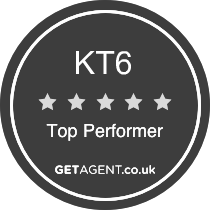If you’re a first time buyer, the prospect of buying a home can be daunting. There’s so much to think about and a complicated process to navigate before you even start searching for your dream home.
Add to this that mortgage rates are historically high and the Help to Buy scheme has come to an end, it’s not the easiest time to be a first time buyer.
However, there are still ways to get assistance with getting onto the property ladder without the Help to Buy scheme. We’ve summarised some of the schemes available to help you get on the property ladder.
Deposit unlock
Deposit Unlock is a new scheme created by the Home Builders Federation (HBF) that allows purchasers to buy a new-build home with as little as a 5% deposit.
Mortgage Guarantee Scheme
This scheme allows participating lenders to offer 95% mortgages to first-time buyers and people looking to move to a new home. It’s available on properties intended to be your only home and you’ll need to submit your mortgage application by 31 December 2023.
The scheme offers lenders the financial guarantees they need to provide mortgages that cover the other 95%, subject to the usual affordability checks, on a house worth up to £600,000.
First Homes scheme
First Homes is a new scheme designed to help local first time buyers and key workers onto the property ladder, by offering homes at a discount of at least 30% compared to the market price. In some areas the discount could be as high as 50%, providing even greater savings.
Shared ownerships
You can buy a home through the shared ownership scheme if you cannot afford all of the deposit and mortgage payments for a home that meets your needs.
Generally you buy a share between 10-75% of the home’s full market value and then pay rent to the landlord on the share they own.
You can take out a mortgage to buy your share or pay for it with savings. You’ll also need to pay a deposit usually between 5 and 10% of the share you are buying.
You can buy more shares in your home in the future. If you buy more shares you’ll pay less rent. You can buy a new-build home, an existing home through a shared ownership resale scheme or a home that meets your specific needs if you have a long-term disability (e.g. a ground floor flat) through the scheme.
Help to Buy Equity Loan
If you’re building a home or hiring someone to build one, you may be able to get a government-backed loan to cover part of the cost. This is called a Help to Build equity loan.
You can apply for the Help to Build equity loan to do any of the following:
- buy land and build a new home on it
- build an ‘airspace development’ flat (airspace developments are new properties built in unused space above an existing building)
- convert a commercial property into a residential property
- build a ‘custom shell home’ (where a professional builds the structure, but you’re responsible for the design and layout inside)
- demolish an existing property and replace it with a new home
You cannot use the loan to build:
- more than one home
- upgrades to your home
- a second home - you must live in the new home and sell any other residential property you own within 12 months of the date the new home is built
You can only get an equity loan if you’re also able to get a mortgage for the home you want to build.
You can apply for between 5% and 20% of the estimated land and building costs for your home (or up to 40% of estimated land and building costs in London).
The estimated costs cannot be more than:
- £600,000 if you’re buying the land and building your home (the build cannot be more than £400,000)
- £400,000 if you’re building on land you already own.
Your mortgage must be:
- a self-build mortgage (this is a mortgage you get when building a home yourself)
- from a lender that’s registered with Help to Build (check their website or ask them)
You’ll also pay interest on the loan each month, starting 5 years after the date that’s shown on the equity mortgage document. In year 6, you’ll pay a total of 1.75% interest on the equity loan amount you borrowed, divided into 12 monthly instalments.
For example, if you got an equity loan of £80,000, 1.75% would be £1,400. You’d pay 12 monthly instalments of £116.67, adding up to £1,400.
From year 7 onwards, the amount of interest you pay will go up in line with the consumer price index, plus 2%.









